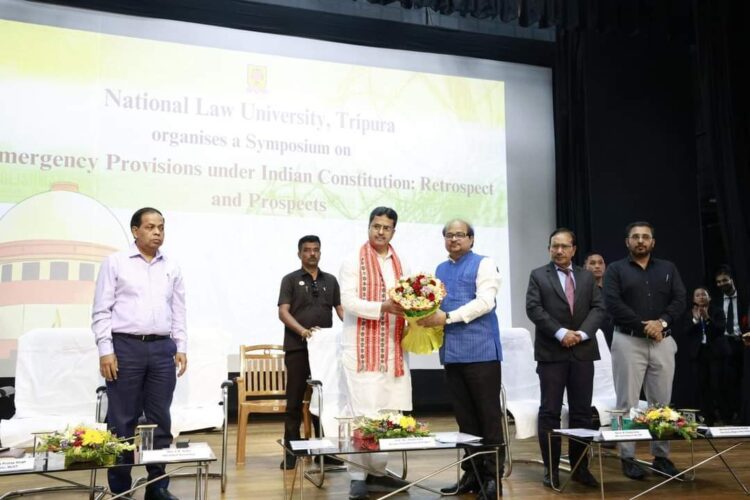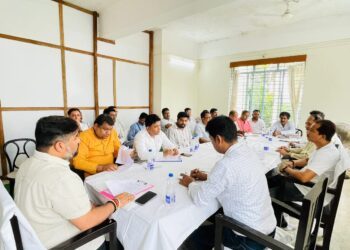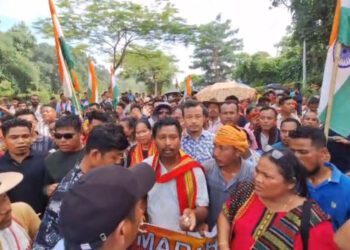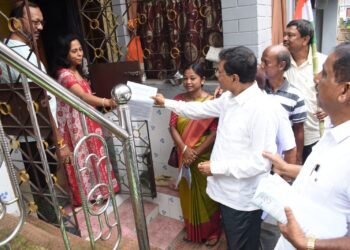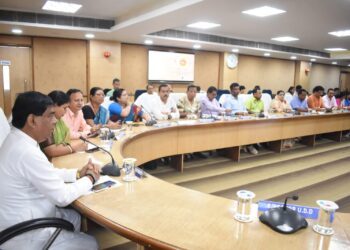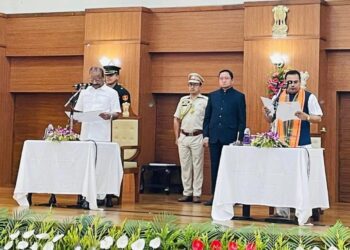Agartala: July 01: During the Emergency in India, democratic values and fundamental rights faced severe challenges. In 1975, the central government, led by Prime Minister Indira Gandhi, imposed a nationwide state of emergency, endangering the country’s constitution and legal system.
Chief Minister Professor (Dr.) Manik Saha recently inaugurated a discussion meeting titled “The Past and Future of Emergency Provisions in the Constitution of India” at the Tripura Judicial Academy in Narsinghgarh. He emphasized that the Emergency had a profound impact on democratic structures and civil rights. The government, in its pursuit of power, disregarded democratic principles and imprisoned opposition leaders without trial.
Media, often considered the fourth pillar of democracy, also faced strict controls during the Emergency, limiting independent expression. Yogesh Pratap Singh, Vice Chancellor of the National Law University, discussed emergency provisions related to India’s constitution during the event. Notable attendees included Chief Secretary JK Sinha, Chief Minister’s Secretary Dr. Pradeep Kumar Chakraborty, and Education Secretary Raval Hemendra Kumar. Additionally, students participated in a quiz on constitutional topics.


